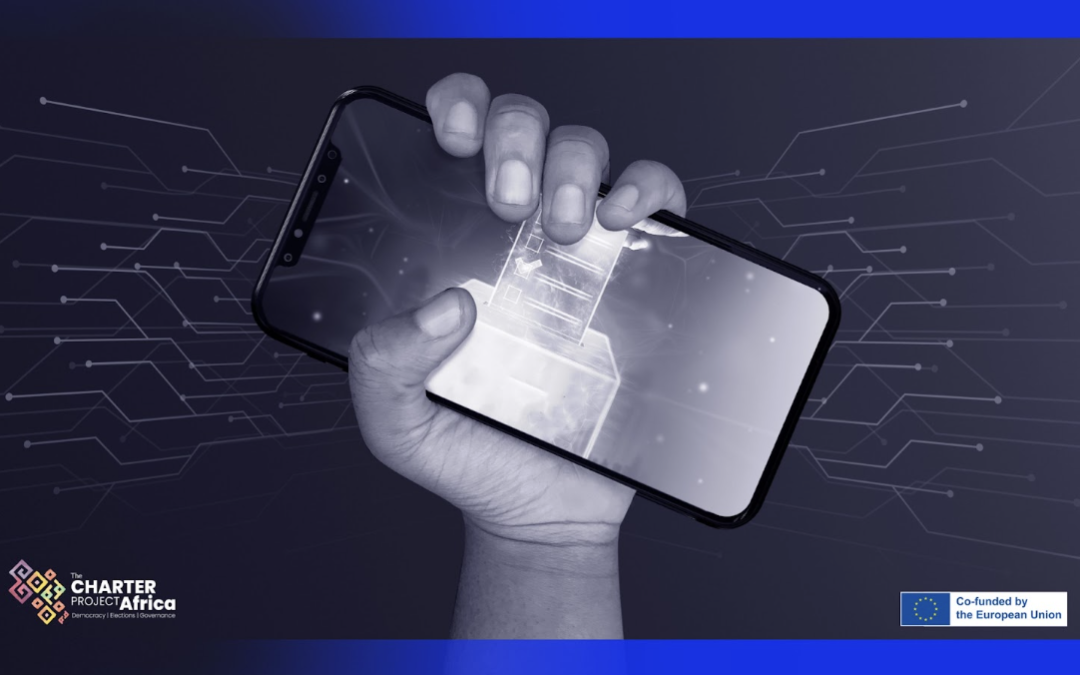Come help us fight extremism!
Nigeria’s elections are being targeted by online extremists, who are trying to polarise and radicalise voters. This ranges from hate speech and incitement to coordinated disinformation or conspiracy claims.
An international coalition of human rights defending organisations including the Charter Project Africa, Democracy Lab and Code for Africa will host a Democracy Hackathon in Lagos on Saturday, 11 February 2023, to help build digital tools or campaigns to detect and counter online extremism and other toxic content.
Participants will get access to a catalogue of existing open source software solutions and data, as well as support from technical experts for teams to either customise proven tools for Nigeria or to build their own solutions from scratch.
The best ideas will win seed-grants to help turn them into real-world solutions, as well as ongoing technical support from a range of partners. Winners will also be invited to participate at a series of digital democracy events in Nigeria later in 2023, and will be showcased internationally on partner websites.
All participants (as part of their teams) will need to build an MVP of their product with the following deliverables to be considered adoptable:
- Create a slide deck around your idea
- Develop and pitch functionality for the idea/workability feature to showcase
- Provide content updates for your idea
Your tool must be open source.
Everyone who produces an MVP through the hackathon that is adoptable is eligible to receive:
- Recommendation from DemocracyLab on LinkedIn
Top 2 teams/tools receive:
- A seed grant of $1500 for the top 1 team
- AWS and/or Google Cloud Voucher for the runner-up
- Invitation to International Extremism Conferences in Nigeria
- Part ownership of the tool you contribute to and full ownership of tools you create
- Showcase completed tool in the Charter Africa, DemocracyLab site ADDO
Remote Participation
Remote participation is available for applicants outside of Lagos. Participate by uploading your prerequisite solutions through the Democracy Lab platform during the hackathon. Submission information includes:
- The name a solution for the problem statement
- The project description
- The product roadmap
- The Functional Requirements Document
- and a landing page to the tool
All documents will be reviewed for viability. Successful applicants are eligible to receive recommendation from DemocracyLab on LinkedIn and a showcase of their platform and spotlighting on the Charter Africa, DemocracyLab and ADDO websites.
Are You Eligible?
The Hackathon is open to technologists (software/data engineers), visual creatives/storytellers, digital strategists, SOMINT/OSINT analysts, domain experts, etc. who want to use their deep skills/insights to support democracy and empower citizens.
We are therefore seeking candidates with:
- A passion for creative problem-solving and using light-touch appropriate technologies that will work reliably with minimal intervention in challenging environments.
- A demonstrable track-record for building and launching digital services/products, or shaping high impact digital campaigns.
- An understanding of human-centred design processes and rapid prototyping, and the importance of user experience (UX) approaches to designing digital products.
- A commitment to learning and sharing insights, both within the Charter Project ecosystem and the wider global civic technology movement.
- A commitment to open knowledge principles, including adhering to open source and open data principles (and documentation), with an understanding of global best-practices for ethical data/technology use
- Fully conversant in the dominant international language for their region (English).
Applicants associated with intelligence or security agencies, paramilitary organisations, state-affiliated propaganda or media agencies or organisations prescribed by the UN or AU or EU are not eligible for these fellowships.
To apply, complete this form by 7 February 2023.
About the Partners
Charter Africa
The Charter Project is a pan-African initiative designed to help civil society watchdogs use the African Charter on Democracy, Elections and Governance (ACDEG) more easily as a tool for strengthening democratic processes across the continent. The initiative is spearheaded by a coalition of six leading African digital democracy pioneers: AfricTivistes, Code for Africa (CfA), the Goree Institute, and the Democracy Works Foundation, with support from the European Centre for Development Policy Management (ECDPM) and the European Partnership for Democracy (EPD). The programme currently focuses on strengthening use of civic technologies in Benin, Botswana, Cabo Verde, Ethiopia, Kenya, Nigeria, Senegal, South Africa, Sudan, Tanzania, and Zambia. It also seeks to strengthen digital democracy processes at regional and continental levels. The Charter Project Africa is co-financed by the European Union.
DemocracyLab is a North American NGO that connects tech-for-good projects with skilled volunteers and socially responsible companies.
Code for Africa (CfA) is the continent’s largest network of digital democracy laboratories, with over 90 full-time data scientists, forensic researchers, technologists and digital storytellers working in support of investigative media and watchdog CSO partners in 21 African countries. CfA builds digital solutions that provide actionable information to citizens to encourage informed decisions, while also amplifying voices to strengthen civic engagement for improved public governance and evidence-driven accountability.
CfA provides the technology/data support for Charter Africa. CfA will give fellows access to support from its openAFRICA data team, commons.AFRICA open source team, its source.AFRICA evidence research team, and a string of wider communities that CfA manages including the africanDRONE community of civic drone/mapping pioneers, the sensor.AFRICA community that uses remote sensors to monitor air/water/radiation and other environmental information, the PesaCheck fact-checking team that debunks misinformation, the iLAB forensic investigation team that tracks and exposes hate speech or other toxic content, the CivicSignal media monitoring and content analysis team, and the WanaData network of women data scientists/storytellers who liberate and amplify feminist data.
